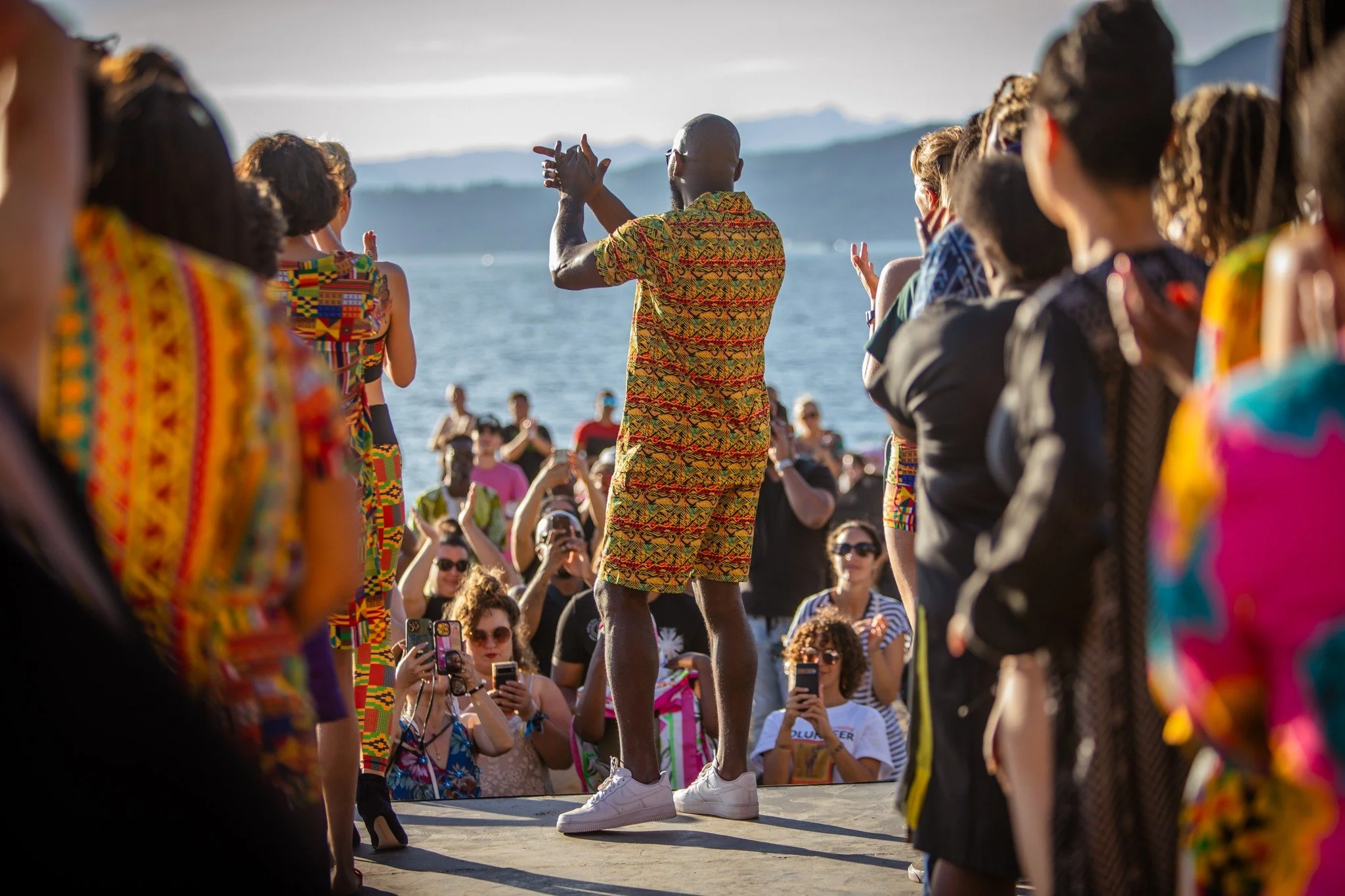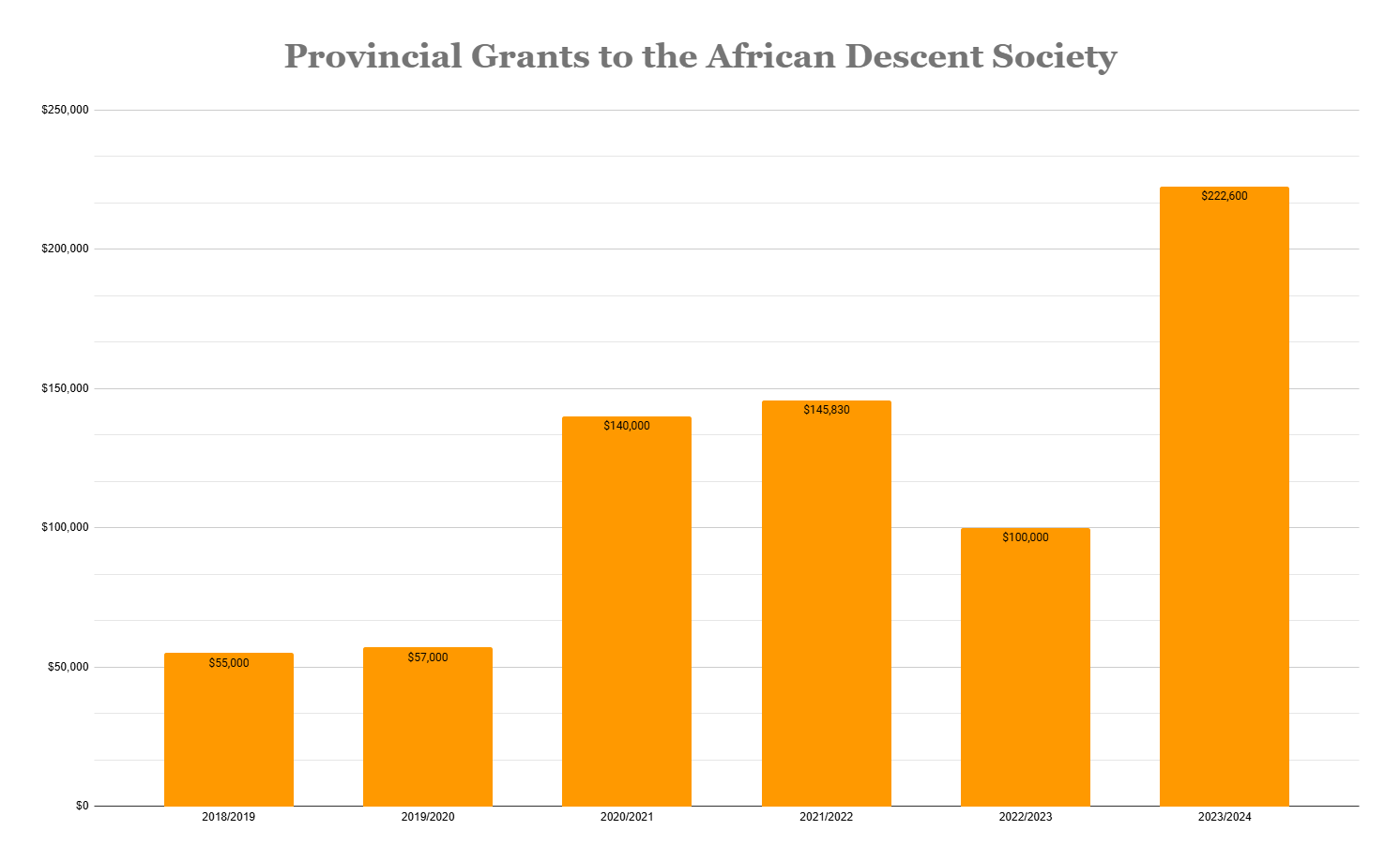Festival shutdown in Vancouver tied to questions of government funding
Courtesy of African Descent Society
The Vancouver Board of Parks and Recreation said the African Descent Festival at English Bay Beach Park was “unpermitted and unsanctioned” after organizers failed to meet planning, safety, and financial requirements. The two-day event, which was supposed to be held August 9 and 10, had been staged annually since 2015, though not always at English Bay. It typically features music, dance, food and performances, and has drawn tens of thousands of attendees.
The cancellation also shines a light on a larger story. Despite repeated disputes with the park board over unpaid bills and safety planning, the African Descent Society (ADS) has received more than $2 million in public funds from federal, provincial and municipal governments since 2016. Federal records show $1.3 million in grants, the BC government has provided at least $720,000 since 2018, and the City of Vancouver has contributed $101,000.
This information was provided by the BC Public Accounts. Figures are expressed in dollars ($).
That level of public support carries expectations of accountability. As a registered society, the ADS is bound by the BC Societies Act, which requires directors to disclose when they have a material financial interest in society business and prohibits them from voting on or attempting to influence related decisions. Yet Coastal Front found potential conflicts of interest tied to Executive Director and Founder Yasin Kiraga Misago’s private companies. Misago is President and CEO of Frontline Public Relations, which he describes as the “mother company” of Frontline Records Vancouver. Both businesses operate out of the same office as the ADS.
At least eight artists represented by Frontline have performed at ADS events going back to 2016. This overlap of roles could create a situation where Misago uses Frontline to bill the ADS for services — paying himself with public funds intended for the society. When asked for comment, Misago replied, “Is providing a service a conflict of interest?” He later phoned Coastal Front’s office, highlighting the “good work” he does and questioning why such inquiries were being made.
The next day, the African Descent Society’s website went offline for several days before returning.
The festival’s permit troubles also tie back to money. Park board officials said organizers had not resolved outstanding debts to both the board and the Vancouver Police Department. A repayment agreement was reached only recently, which the city said was too late for 2025 planning. Police and park rangers reportedly blocked setup at the beach before the scheduled opening.
The cancellation left the society claiming hundreds of thousands of dollars in sunk costs, with more than 40,000 attendees expected. Organizers also stressed the symbolic importance of English Bay, linking it to Joe Fortes, Vancouver’s first lifeguard and a pioneering Black resident.
As mentioned, the BC government alone has provided more than $720,000 since 2018. Coastal Front asked the province whether it was aware of Misago’s private business interests, whether funding agreements with the ADS contain conflict-of-interest provisions, and whether the province has reviewed or will review ADS’s governance and financial management. The Ministry of Tourism, Arts, Culture and Sport initially said it was “looking into this” and promised a response by August 14. More than a week later, no comment has been provided.
The permit dispute has not only jeopardized one of Vancouver’s largest cultural celebrations, but also sharpened questions about how millions in taxpayer dollars have been handled by the ADS — and about the governments that continue to fund it despite repeated red flags.



